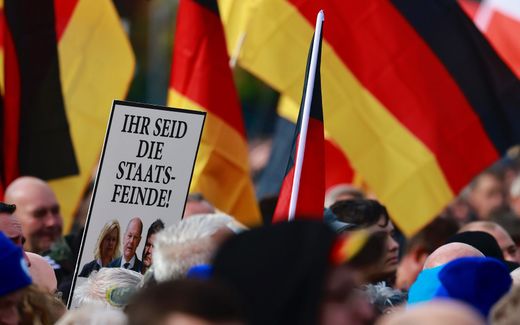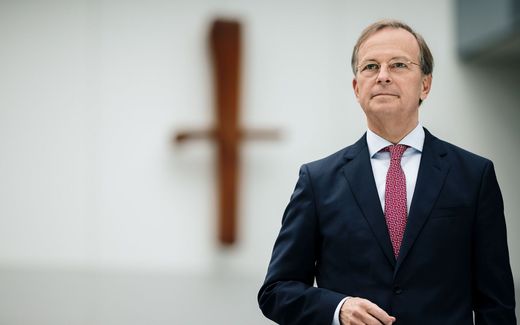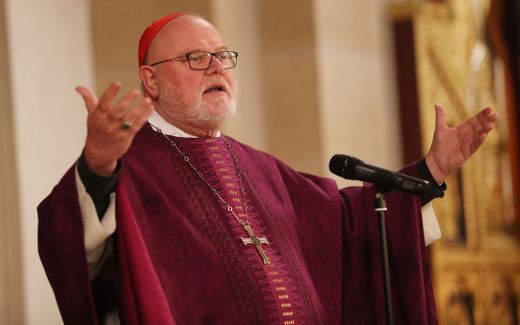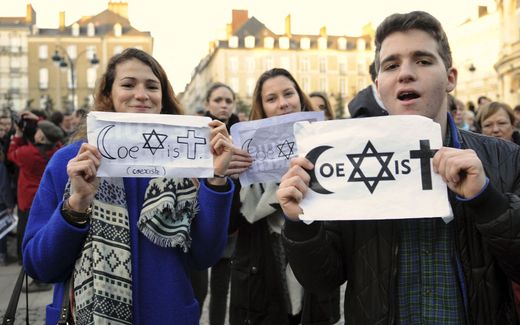Evert’s comment: Excluding right-wing parties from the church is a risky business
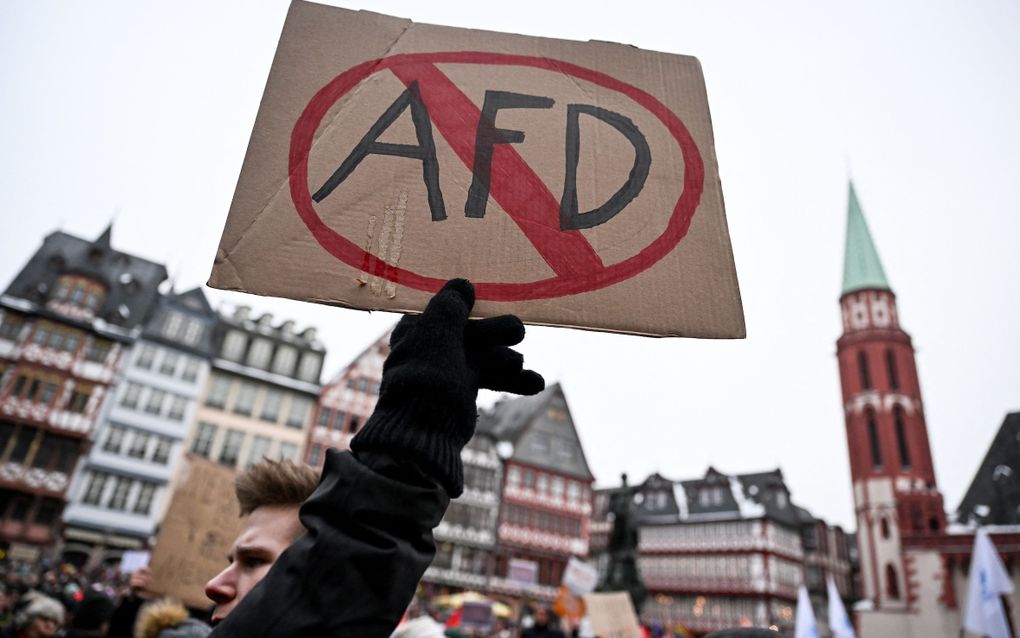
Should churches accept people who campaign for the right-wing AfD? Many church leaders say no. Photo AFP, Kirill Kudryavtsev
Opinion
Guess what was the most-read article at the German Protestant news site “Evangelische Zeitung” on Wednesday? The overview with this week’s demonstrations against the right-wing AfD. Many Christians in the country feel uneasy with the rise of the AfD in the opinion polls.
No doubt, everything that is right-wing is sensitive in Germany. New political initiatives are invariably mistrusted in advance because they might be extremist.
The AfD started in 2013 as the “Alternative for Germany”, being critical of the euro. I remember that leading media as Der Spiegel were very sceptical. Because you know, all newcomers are dangerous! And yes, in the case of the AfD, they felt confirmed in that feeling.
The past two weeks, the AfD issue was among the leading topics in the Christian media in Germany. Church leaders said that membership of this party was “not compatible with the Christian faith.” These expressions came both from the Roman Catholic Church as well as from the Protestant EKD.
The debate is not new. In November, the Catholic archbishop of Bavaria, Reinhard Marx, already stated that AfD members should be excluded from serving in official church positions. That was even before it was revealed that the party had participated in a meeting in which the forced “remigration” of immigrants from Germany was discussed. Of course, that news only stimulated this debate.
As an outsider, it is interesting to see how many church figures showed up in the German media to condemn the AfD. Although the party has a working group for Christians in the AfD, I only saw one article with a response from that side. Of course, he spoke of a “witch hunt”.
The media could have been more generous here since quite a few AfD representatives are confessing Christians. And we know that some stances from the political program of the party are attractive to Christians, like the choice for traditional marriage and family and the stance against abortion. It is public knowledge that quite a few Evangelicals are attracted to this program.
The problem for churches is not so much in the traditional positions –although the large people’s churches in Germany do not agree with the very conservative positions there– but in the topics regarding immigrants. The party is accused of being racist and even anti-Semitic – and it has to be said: sometimes understandably. Because of those reasons, there is a parallel political debate in Germany about whether the party should be forbidden at all.

Of course, this is not only a German issue. Right-wing parties that are critical towards immigrants are on the rise all over Europe. The Sweden Democrats are in the government coalition now. In Spain, Vox gained a lot of votes last year. In Italy, Giorgia Meloni is even Prime Minister now. And I could mention more examples.
The expectation is that those parties will grow at the European Parliament elections in June this year. That means that more churches in more countries will face the same question: how to deal with church members who campaign for anti-immigration groups?
In the Netherlands, one church minister tried to raise a comparable debate as in Germany after the November elections in which Geert Wilders’s PVV gained strongly. Retired pastor Jaap Goorhuis asked the leadership of the Protestant PKN church to exclude PVV members from the Lord’s table. This was an echo of a decision by the Reformed GKN church in 1936 with members of the National-Socialist NSB party. But times have changed.
It is not hard to imagine that it is difficult for the church leadership if some members are outspoken politicians. It could be nice to have some respected Members of Parliament in the pews. But it is different if they look like radicals and troublemakers. Notwithstanding the good policies the AfD stands for (for instance, concerning family and abortion), many representatives love being provocative. Imagine you are the pastor who has to pray during the public intercession on Sunday morning, if you have your own doubts about his performance.

But still, the idea of outlawing church members because of their party affiliation seems quite strange to me. Of course, a Christian who campaigns for anti-Semitism should be spoken out against. And hatred against anyone (not only immigrants) is a sin that should be a reason to stay away from the Lord’s table.
The church should have discipline. But that discipline is against sin and not against political groups. History teaches that churches should stay away from the political field. That is not the realm of the church.
Apart from that, you could ask why the church is so sensitive to the right-wing side. I understand that racism is more controversial in Germany than in other countries, because of its Nazi history. But the same archbishop Reinhard Marx who is against the AfD, organised “rainbow masses” in the church to promote LGBT presence in God’s Kingdom. Of course, that is a provocation of the formal teaching of the Catholic Church. But it is also clearly a departure from what the Christian church of all times and all places has taught and continues to teach about relations and sexuality.
So, it is good if the church has a message for the world. But as soon as this message gets politicised, this will lead the church into endless debates without a spiritual testimony. In other words, it is wise to stay out of that.
Related Articles


